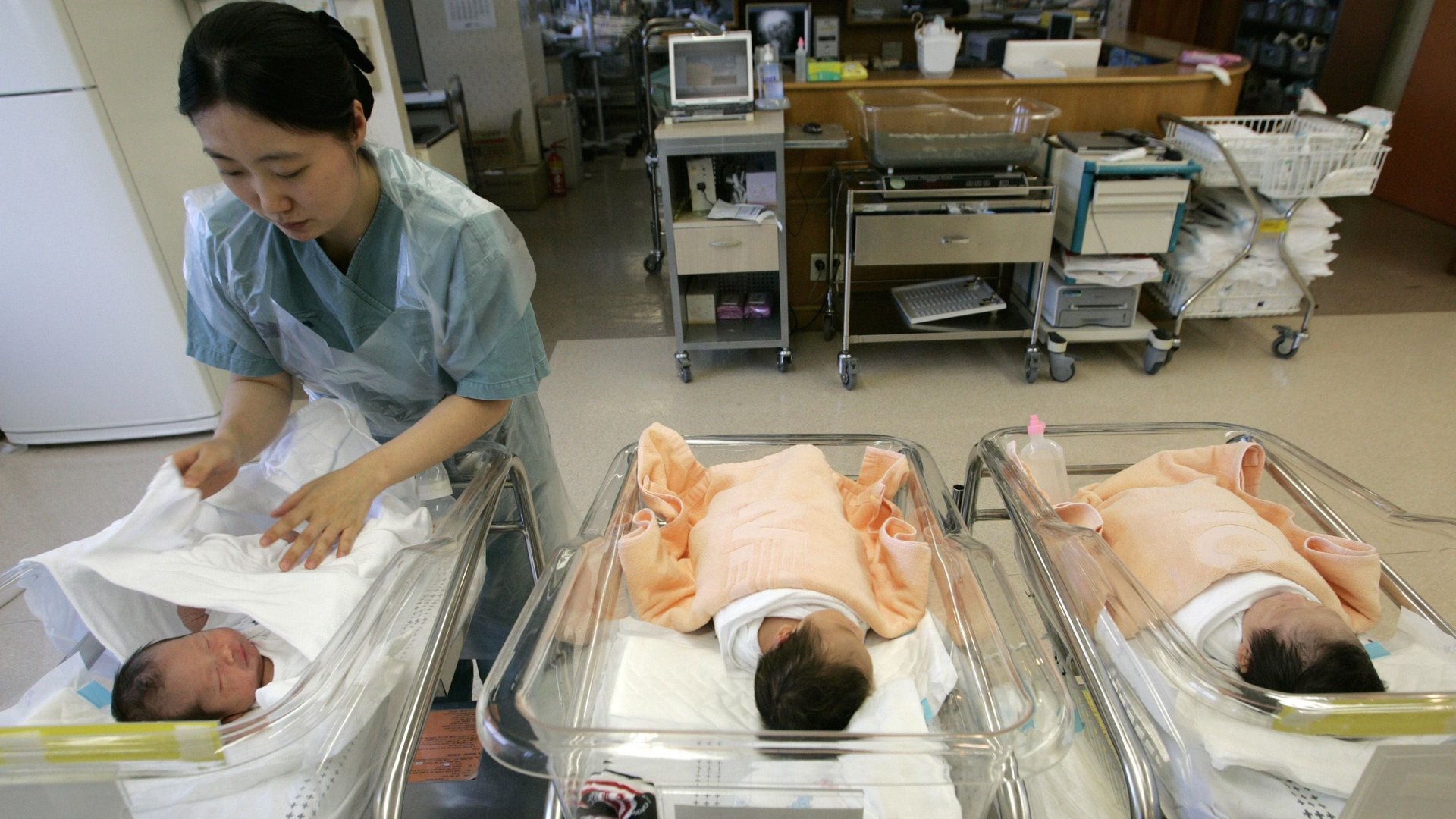Finally, a spa that gives brand-new moms a break from their babies—and their inlaws
If you aren’t ready to face the chaos and household chores of home right after giving birth, you might want to consider a move to South Korea.


If you aren’t ready to face the chaos and household chores of home right after giving birth, you might want to consider a move to South Korea.
For years now, many South Korean women have gone to sanhujoriwon, spa-like postpartum care facilities, to recover from giving birth. In these maternity hotels throughout the country, professional nurses watch the newborns around the clock and give mothers time to recuperate. They typically cost 3 to 5 million Korean won (about $2,700 to $4,500) for two weeks of treatment, though some luxury versions cost as much as 12 million won (about $10,800).
The first few weeks after giving birth are considered a crucial time for rest in Korea, so mothers spend their time eating miyukguk, or seaweed soup, three times a day, drinking warm water, and not doing any housework. That last benefit is especially appealing in a country whose husbands are the worst in the world when it comes to helping out at home.
Some facilities boast special amenities such as yoga or baby care classes, organic meals, and massages. Some places limit visitors to only the husband, allowing new mothers to avoid overly eager in-laws.
For working women, the price of sanhujoriwon can be justified if it helps them re-enter the workforce more quickly. South Korea is notoriously unfriendly to working moms, with many dropping out of work to take care of children due to a lack of child care options. Some even avoid taking maternity leave (link in Korean) altogether because of fears that their bosses and coworkers might disapprove.
Cho Young-eun, a 36-year-old expectant mother, told the Korea Herald that she had convinced her husband that the price of sanhujoriwon was a worthwhile expense, since her job allows her to contribute to the household income. “I am worried about failing to recover before I go back to work,” she explained.